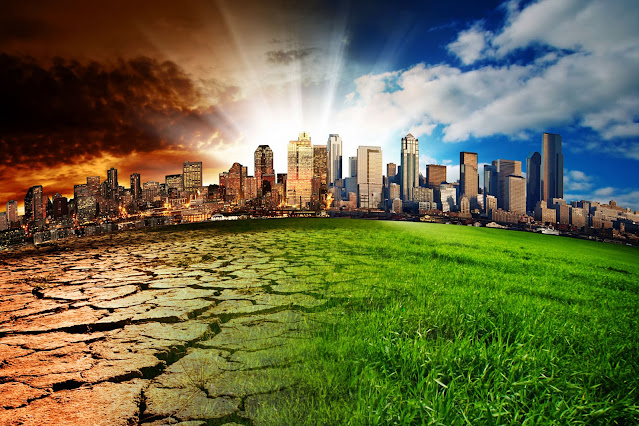The Reality of Global Warming: What You Need to Know
The debate over global warming has been raging for years, with people on both sides of the issue passionately arguing their points. But what is the reality of global warming? What do we need to know about it? In this blog post, we will discuss the science of global warming and dispel some of the myths that have been circulating online. We will also talk about what we can do to help slow down the process of climate change.
What is Global Warming?
Global warming is the gradual increase of the Earth's average surface temperature. The main component of global warming is the increased emission of greenhouse gases. Greenhouse gases are gases that trap heat in the atmosphere and include water vapor, carbon dioxide, methane, and nitrous oxide. Over the last century, the Earth's average surface temperature has risen by about 0.80 degrees Celsius (about 0.50 degrees Fahrenheit). This may not seem like a lot, but it can actually have a big impact on the Earth's climate.
There are a number of factors that contribute to global warming, but the most significant is the burning of fossil fuels. When we burn fossil fuels like coal and oil, we release greenhouse gases into the atmosphere. These gases trap heat and cause the Earth's temperature to rise. Deforestation is also a major contributor to global warming. Trees absorb carbon dioxide, which helps to regulate the Earth's temperature. When we cut down trees, we remove this important source of regulation.
What are the Impacts of Global Warming?
Global warming can cause a number of different impacts, both on the environment and on human beings. One of the most significant impacts is sea level rise. As the Earth's temperature rises, so does the temperature of the oceans. This causes the water to expand, resulting in a rise in sea level. Sea level rise is already a major problem in coastal areas, and it is only going to get worse as global warming continues.
Another major impact of global warming is more extreme weather. As the Earth's temperature rises, we are seeing an increase in the frequency and intensity of storms, floods, and droughts. Extreme weather can cause damage to property and infrastructure, and it can also lead to loss of life. In recent years, we have seen a number of devastating hurricanes, like Hurricane Harvey in 2017 and Hurricane Maria in 2018. These storms would not have been as severe if it were not for the increased water temperatures caused by global warming.
What Can We Do About Global Warming?
The good news is that there are a number of things we can do to help slow down the process of climate change. One of the most important things we can do is to reduce our reliance on fossil fuels. We can do this by using more renewable energy sources, like solar and wind power. We can also conserve energy by making small changes in our daily lives, like turning off lights when we leave a room or carpooling to work.
We can also help to slow down global warming by planting trees. Trees absorb carbon dioxide, which helps to regulate the Earth's temperature. By planting trees, we can help offset some of the greenhouse gases that are being released into the atmosphere.
The Reality of Global Warming
Global warming is a real and pressing problem. The science is clear: the Earth is getting warmer, and human activity is the main cause. This warming is already having an impact on the Earth, causing sea level rise and more extreme weather. But there is still time to act. We can slowdown climate change by reducing our reliance on fossil fuels and by planting trees. These are just a few of the things we can do to make a difference. Let's all take action now to protect our planet from the effects of global warming.
This blog post was brought to you by the team at 92-times.com. We're passionate about environmentalism and we hope this post has helped to raise awareness about the reality of global warming. Visit our website to learn more about what we're doing to help make a difference. Thank you for reading!






0 Comments